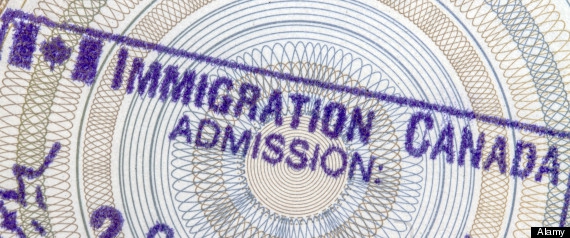Thursday 11 October 2012 - 11:44
Story Code : 7416
Iranian parliamentarians apply for visas to attend conference in Canada
OTTAWA - A month after their nation's diplomats were turfed from Canada, members of the Iranian Parliament have applied for visas to attend an international conference in Quebec City.
Canada is the host of this year's assembly of the Inter-Parliamentary Union (IPU), the 100th anniversary of its membership in an organization that predates the United Nations.
Given that Ottawa recently listed Iran as a state sponsor of terrorism, it's unknown whether the Canadian government will issue visas to the parliamentarians. Citizenship and Immigration Canada will not comment on its cases because of privacy laws.
However, government sources say each applicant will be evaluated individually, and their memberships in different organizations examined. The Iranian Parliament includes some members of cultural and religious minorities, including one Persian Jew, Zoroastrians and Catholics.
"The Conference is being run by Parliament � not the Government of Canada," noted Alexis Pavlich, spokeswoman for Immigration Minister Jason Kenney.
"Individuals seeking to enter Canada to attend this conference must enter our country legally through the standard visa application process."
Iran's Fars news agency reported in September that parliamentary Speaker Ali Larijani cancelled his plans to attend the assembly after Ottawa suddenly severed diplomatic ties.
Francine Pressault, a spokeswoman with the Senate, said she has been informed that an unspecified number of Iranian parliamentarians recently applied for visas. Delegates were told to apply 30 to 60 days in advance � the assembly takes place October 21-26.
The Interests Section of the Government of Iran in Washington, D.C., did not respond to questions about attendance at the IPU.
Like the UN, the IPU includes a wide range of countries on the political spectrum � including Cuba, Syria and North Korea.
"One of its founding principles is always to bring together parliamentarians from all over the world in a unique forum to actually have dialogue to overcome differences as well, and that is a core principle of the organization," said Geneva-based IPU spokeswoman Jemini Pandya.
"Every IPU assembly has to adhere to that principle, that all members can come to the assembly."
Conservative Sen. Don Oliver, the enthusiastic Canadian president of the assembly, emphasized that the IPU is a place to exchange ideas and best practices. He said many countries approach Canada for advice on its committee system, running elections and other matters.
"Of all the 162 countries, there are few of us that have similar democracies," said Oliver.
"We're all different. We're all in different states of progress in the development of our democracies, so we don't judge one from another."
The delegates represent the legislative branch of government, he added.
"We're not government, we're not the executive, we're not the cabinet ministers, we're the legislative branch and what we talk about are things related to democracy, and what we can do to help make the world a better place," said Oliver.
NDP foreign affairs critic Paul Dewar said there should be no political interference in the decision to grant the Iranians entry.
"These are parliamentarians, and the organization is very clear that this is about parliamentarians, and they've been around for over 100 years," Dewar said.
"It shouldn't be getting in the mix of whatever contemporary politics are."
One of the central themes of this year's assembly, which will bring 1,300 to 1,400 delegates to Quebec City, will be "citizenship and cultural and linguistic diversity in a globalized world." Oliver said Canada � and Quebec City � is a perfect venue for such a discussion.
The senator said there will also be a focus on promoting gender equality in the parliaments of the world. Countries that arrive with few women are given proportionately fewer votes on the assembly floor.
The Australian media are already scrutinizing one potential delegate who'd been scheduled to be in Quebec City: Peter Slipper, Speaker of the Australian House of Representatives, resigned in scandal Tuesday over sexist texts sent to an adviser.
The Iran Project is not responsible for the content of quoted articles.
# Tags











